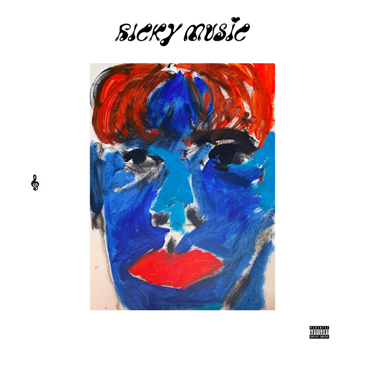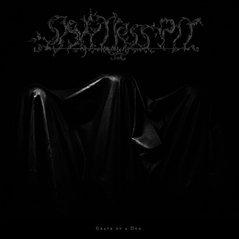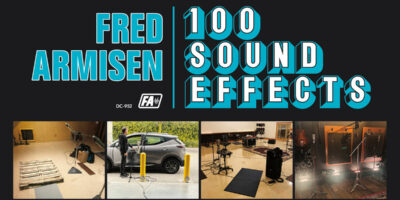We’re here to tell you what’s hot and what’s not on this week’s music roundup

Sorry – 925
Genre: Trip-Hop, Noise Pop
Favorite Tracks: “Right Round the Clock,” “In Unison,” “Perfect,” “Rock ‘n’ Roll Star”
The title of underground British rock ground Sorry’s debut, 925, comes from the song “Rock ‘n’ Roll Star.” It’s a reference to the amount of pure silver in sterling silver, (95.2 percent) which they’ve decided to spoonerize because they don’t care, and they want you to know it. That song in particular is about an initially glamorous, sexually charged fling with a rock star that turns monotonous and unfulfilling in record time. The narrative is similar to how I felt about 925 as a whole: initially mind-blowing, left me reeling, then overstayed its welcome as it lost its charm, trying to relive its best moments to diminishing returns.
Sorry have been getting a ton of praise for their anarchic genre-tinkering, and certainly 925 defies easy classification. The best way I can describe it is a combination of Portishead’s slinky jazz-inflected grooves, Radiohead’s serrated arpeggios and existential angst, and Parquet Court’s springy surf-rock bass work. It’s immaculately produced, blending electronic sounds and organic instruments into an immaculate whole of ear-wormy melodies and seductive atmosphere. Even the most low-key songs are packed with musical hooks, often spreading them among multiple instruments to gorgeous effect. The dizzying, oscillating riff on “Starstruck” that works perfectly with the faded layers of vocals, a flawless transition from a heavy, honking drop to an elliptical indie pop melody on “In Unison,” the bubbly beat, clanging percussion, and stabs of sax and piano on “Right Round the Clock”—they are beautifully layered and composed, and every listen reveals new elements.
Sorry have one speed and one lyrical attitude: steady, mid-tempo, but without much urgency, relying on textures to make each song pop and pique your interest. As a result, later cuts like “Heather” and “More” don’t do enough to stand out as the band runs out of ideas short of the production getting blown out and sloppy for no adequate reason. Without question, the most divisive aspect of 925 will be the bleary-eyed, quintessentially millennial ennui that the entire record wallows in. There are points where it works, especially the nihilistic “In Unison,” where the band asks themselves “When will you get ‘round to doing what you’re supposed to?” However, much of the album doesn’t have the cutting bluntness of that lyric, nor any poeticism to make up for its absence, and thus there’s nothing to counterbalance the numb disaffection that is too basic to stand on its own. While there are some pretty vocal harmonies and arrangements from Louis O’Bryan and Asha Lorenz, their mellow delivery doesn’t help, never exploding like Thom Yorke on songs like “Black Star” or “Paranoid Android” to break up the sulk. There is a lot to like on 925, and it will certainly gain an audience that appreciates the writing for the same reasons that I dislike it. I only wish I could join in the unconditional rapturous praise, because the high points are among the best genre-fusing, textured pop you’ll hear on a debut this year, but its slight drop in freshness near the end and homogenous attitude keeps me from fully embracing it. [Blake Michelle]

Dua Lipa – FUTURE NOSTALGIA
Genre: Pop
Favorite Tracks: “Cool,” “Levitating,” “Physical,” “Don’t Start Now”
When singles for FUTURE NOSTALGIA started coming out, white gay men immediately started praising Dua Lipa as “the savior of disco,” some going as far to even call her the Queen, an absolute stretch that was not only an affront to Donna Summer, but also just a fast track to making the vast majority of people not want to listen to it. And don’t get me wrong: While I’d be remiss to say the whole album slaps, FUTURE NOSTALGIA is a parade of bops that are instant serotonin, by and large a jolting, blast of endorphins that leaves no pop diva stone unturned with all feet on the dancefloor. But it’s a pop album with passing disco influences, and what modern pop doesn’t have disco influences? Much like Tyler the Creator’s IGOR, only one half of the album solidifies enough to find its sound and temperament—IGOR ending with a bang while FUTURE NOSTALGIA beginning strong, a once-bright sparkler unfortunately petering out with a tonal shift somewhere during “Pretty Please.” The album ends on a confusing, erroneous note with “Boys Will Be Boys.” While the sentiment is appreciated, with Lipa trying to hold men accountable for the rape culture they have perpetuatred, her lyrics don’t really say much more than what’s already been said by thousands of other theorists and women with firsthand experience. I’m glad the track is included but it feels like a blunt edge, lost among a sea of other, stronger voices that cut deeper and harder. “Boys Will Be Boys” is hardly a reason to boycott FUTURE NOSTALGIA, as the album is a saccharine bit of levity in an extremely hard and terrifying time in the world. Just please don’t call it disco. [Jesse Herb]

Porches – RICKY MUSIC
Genre: Indie Pop
Favorite Tracks: “Patience,” “Do U Wanna,” “PFB,” “Madonna,” “I Can’t Even Think,” “Wrote Some Songs”
Aaron Maine’s unexpected evolution from upstate New York hipster badboy to bicoastal fashion prince has been marked with poetic highs and try-hard lows. Maine’s latest record, the bizarrely titled and wonderfully concise RICKY MUSIC, is a redemptive follow up to 2018’s cookie-cutter slog THE HOUSE. RICKY MUSIC finds Maine sticking to the same formula that made 2016’s THE POOL a masterpiece of the 2010s. FM synthesizers and drum machines lay the groundwork for wiry guitar leads that tow the line between Mac DeMarco nasalness and the R&B chorused-out chords of Dev Hynes.
As much a visual force in the indie scene as he is a sonic one, Maine’s leadup to the release of RICKY MUSIC included masterfully curated, buzzed-about videos and a swarm of trendy selfie shitposts on Instagram. While the factors that make RICKY MUSIC a hit are the same ones that solidified Maine’s indie rock prince status four years ago, his most recent endeavour feels a lot more heartfelt and natural than THE HOUSE, playing like it was recorded one step ahead of society’s ridiculous and turbulent start to the new decade. There is a negativity to RICKY MUSIC that would likely come across as needless angst under different global circumstances, but instead speaks for the terrible human condition that resulted from systemic collapse in the wake of the recent Coronavirus pandemic. “PFB” packs the relevant “It’s looking pretty fucking bad” mantra into a 33-second standout interlude. The F-bombs continue on “Fuck_3,” a chaotic, no wave-indebted shot of dissonance that trades predictable Manhattan electric melancholy for an atypical palette of folk instruments. While its sentiment is sweet, album closer “Wrote Some Songs” has a reflective quality to it that feels almost postmortem. The track finds Maine pondering a self-proclaimed useless existence but comes to terms with the fact that, while he may not be the success he wanted to be, he did write some damn good songs with his time spent on this earth. If everything goes to shit and “Wrote Some Songs” is the last recorded Porches track, it is a sweet, honest, and appropriate footnote for Maine’s singular career. Even the excellent single, “Do U Wanna,” is a dance number masked in post-gothic nihilism. With a video featuring a staunch Freudian therapy session and an “I am so happy I could die” hook, the track veils its gloom in cheerful sentiment.
RICKY MUSIC is a record that looks the same as its predecessors but swaps the meandering poetry of Maine’s best prior work for an honest and reflective, if not deliberately morose, 26-minute sucker punch. It is a fitting and listenable soundtrack to a time in our lives where external joy has been cancelled and the uncertainty inside us holds as many answers as the forces that we rely on for aid. RICKY MUSIC is an album that will justify the frown glued to your face while still making you jump around and scream with joy as you wallow in the shittiness of Spring 2020. [Ted Davis]

Real Estate – THE MAIN THING
Genre: Indie Rock
Favorite Tracks: “Paper Cup,” “Falling Down,” “Also A But,” “Brother”
Ahead of the release of THE MAIN THING, Uproxx’s Steven Hyden published an excellent interview with Martin Courtney about the trials and tribulations regarding being what is ostensibly a legacy indie rock band over a decade into their careers. It’s an interview well-worth reading, but among the soul-searching unfolding throughout is this important consideration:
“You know, you start to feel old. I’m not that old, I’m 34. I’m not really that old at all. But things move really quickly, for sure. One minute you’re the cool young band, and the next minute… I mean, I started grappling with this probably five years in. You know, “Why aren’t we cool anymore?” But we’re really lucky to have had some modicum of success. Maybe we’re not cool, or maybe we don’t have the super young, hip Brooklyn scene on our side anymore. But perhaps our fans are growing with us, and that’s one thing that I think about a lot.”
Like a lot of indie rock fans around my age, Real Estate meant a lot around the time they dropped those first two releases—our own Nathaniel Dueber did a tremendous job describing why exactly DAYS was such an important album in our best albums of the decade list, and I share his sentiments exactly. I don’t love THE MAIN THING. I certainly don’t hate it—I’m kind of at the point now where I’m not sure I could hate a Real Estate album, but I suppose that’s largely to Courtney’s point. The group’s sound is too fully formed and attached to a part of my brain that God willing isn’t going anywhere any time soon, and reading his unfurling thoughts in that interview I felt bad as a listener; I’m certainly glad the album exists, it has a handful of songs that are going to be springtime staples for me, but I don’t think Real Estate are cool anymore and don’t really think they’ve been cool for a long time. I also don’t think Real Estate needs to be cool—even if lead single “Paper Cup” is a funky little bop, getting someone as trendy as Sylvan Esso’s Amelia Meath to guest on it feels like a move to add cred where there’s such a deficit it doesn’t matter.
Elsewhere in that interview there’s a quote that producer Kevin McMahon would say to the band whenever they would come up with an idea: “Is there a reason for this? I’m not making a judgment call on whether I like it or not, but as long as you’re thinking about it and you’re not just falling into old habits.” That quote is fascinating to consider for a band who have spent a career capturing the nostalgic, daydreaming ennui of a generation of indie rock fans. On the one hand, the hope is absolutely not to get comfortable—THE MAIN THING didn’t end up being a second act for an established legacy band, but it easily could have been and that’s an admirable thing to chase even if it’s somewhat out of the band’s control to manifest. The band really push their sound to the furthest edges of the dream pop landscape to varying results at times on this record, the comical pitchiness of “Silent World” falls short while the deep, hollow, open quality of “About A But,” not to mention the Jerry Garcia noodling, gives nice texture to the record. And yet there is a degree of “shut up and play the hits” too, and that’s the rest of THE MAIN THING. A song like “Falling Down” is so comfortable-sounding, I can’t help but really appreciate the ease with which this laid-back guitar still comes naturally to the band, and how much that song could fall anywhere in the band’s canon. When you’re in the business of manufacturing a specific vibe, as Real Estate very much are, sometimes old habits are good. THE MAIN THING falls back on plenty of old habits at times, and I’m perfectly okay with that. But seemingly Real Estate are at a crossroads of whether to be cool or to be comfortable, and here they refuse to settle to the album’s detriment. [CJ Simonson]

Caroline Rose – SUPERSTAR
Genre: Indie Pop
Favorite Tracks: “Do You Feel Like We’ll Last Forever?,” “Feel The Way I Want”
We’ve made no bones about how much we love Caroline Rose around these parts—many of us have written about her or her album LONER (which made our best albums of the decade list) and she remains one of the most dynamic live performers in her generation of musicians. And certainly if I’d have heard that her next record would be audaciously titled SUPERSTAR, I’d of course have gone all in—the concept of hearing Rose translate the buoyant, electric energy of her breakthrough into a massive pop record, one worthy of the crossover title SUPERSTAR, is all I would’ve wanted post-LONER.
But… this ain’t it. Tragically the buoyant, electric energy that fueled some of the most genuinely fun indie pop songs of the last several years has mysteriously disappeared on her latest, an album that seems to have learned the wrong lessons from LONER, communicating some of the sonic aesthetic with none of the songwriting genius. I suppose she addresses some of this in the album’s second track, “Got To Go My Own Way,” which has some springy pop production but is hardly memorable. “Remain humble / Not like all these fakers,” she begins, “Always get bleacher seats / Sitting at the LA Lakers,” before eventually arriving at the chorus, “’Cause I got to go my own way / I’ve got to start a new life / I got to go my own way / I was born to be a star.” The track feels like a thesis, an acknowledgement of the leaps she’s made in a short time while also serving as a kind of shallow character study at which to mine from for the rest of SUPERSTAR. Certainly Caroline Rose sings like a pop star—that hook would do wonders falling out of Miley Cyrus’s mouth—but musically the spontaneity, personality, and electricity of LONER either fails to matriculate or feels oddly tamed back, the synth sounds consistent but decidedly lacking in the self-awareness that Rose as a pop star is itself a kind of zany concept (she is, after all, still signed to New West). Single “Feel The Way” has certainly grown on me since it was first dropped at the beginning of the year, but that it’s as earwormy as the album gets is disappointing. Lots of the back half of the record slows things down when it should be revving up, with “Someone New” presenting another nice slice of modern pop songwriting (for real, let’s get Rose to write the next Brittney Spears record) before hitting snooze for the rest of the album from “Pipe Dream” onward. The album doesn’t have one moment that approaches the fun of “Bikini” or “Jeanie Becomes A Mom,” the closest it gets being the loose, bright delivery on highlight “Do You Think We’ll Last Forever.” Regularly the album sacrifices joyful indie pop for what I’m sure is being strategically looked at as some kind of mature step forward, which is cynicism I don’t want to believe someone as amusing as Rose is capable of. I think Rose has an album named SUPERSTAR in her somewhere, but I can’t say this one is worthy of her talents. [CJ Simonson]

Sightless Pit – GRAVE OF A DOG
Genre: Death Industrial
Favorite Tracks: “The Ocean of Mercy,” “Drunk on Marrow,” “Whom the Devil Long Sought to Strangle”
If you keep up with heavy music at all, you’ve no doubt heard the names The Body, Full of Hell, and Lingua Ignota regularly referenced the past few years, due in no small part to efforts of publications such as this one. Three acts that have made the general umbrella of metal more punishing and a whole of a Hell lot weirder, fans’ interests were piqued when collaborative side project Sightless Pit was announced. Thankfully, it lives up to the significant hype placed upon it, feeling like a truly cohesive combination of everyone’s respective sensibilities while somehow pushing things ever further into the realms of the bizarre. What’s most immediately striking about GRAVE OF A DOG is the fact that it’s largely beat-oriented, the trio of Lee Buford (The Body), Kristin Hayter (Lingua Ignota), and Dylan Walker (Full of Hell) electing to entirely forego guitar, instead relying on a beguiling mixture of hypnotic synth washes and pummelling industrial scuzz. Kind of like MERZBEAT if it were made by Maurice de Jong of Gnaw Their Tongues had he studied Medieval choral arrangements, GRAVE OF A DOG matches Hayter’s idiosyncratic vocal anachronisms with Walker’s nightmare screech, all the more strikingly contrasted due to a star production turn from Buford, whose progressively more experimental work in The Body in recent years feels like it gets to fully stretch its wings here. While it’s obviously as claustrophobic and uncompromising as expected (“Miles of Chain”), Sightless Pit demonstrate a far more passionate penchant for melody and beauty than one might necessarily expect, with outros to songs such as “Violent Rain” genuinely soothing and contemplative and “Drunk on Marrow”’s noisy production hiding a dark jazz riff that sounds like it could have been on a Bohren & der Club of Gore release. Toss in a hefty dose of exploratory experimentation to scratch the itch of those who have a taste for that sort of thing (“Whom the Devil Long Sought to Strangle”) and you’ve got one of the most singular and innovative releases of 2020 on your hands. [Thomas Seraydarian]















Comments